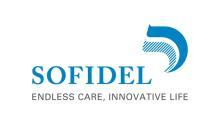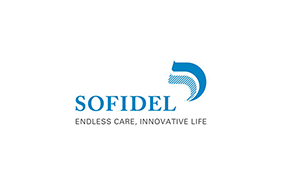Sustainability Best Practices for Your Business
Published 10-17-23
Submitted by Sofidel

By: Mark Kirchgasser, Vice President of Sales – Away from Home, Sofidel America
Sustainability is an increasingly important focus for many businesses. Climate change is affecting our lives and the planet, which means sustainable business practices are vital for business owners, leaders and administrators.
Awareness is a good starting point for businesses looking to become more sustainable. As organizations become more aware of the current impacts their business practices have on the environment, the more likely they are to make strides in reducing their company’s carbon footprint and take on roles as industry leaders.
Waste and Sustainability
Waste continues to be a growing issue, and 20 businesses have been found to generate roughly 55% of global plastic waste. Before it’s too late, these leaders must make sustainable changes to limit their organizations’ impact on our environment.
Studies show that consumers are willing to forgo brands that don’t support their values, and consumers supporting sustainable companies have grown in popularity. At least 50% of consumers cite the pandemic for causing them to rethink what’s important to them, which changes their buying habits. By doing this, they’re setting the bar for industries to re-strategize and set new standards for meeting and exceeding expectations.
At least 76% of consumers say they are attracted to businesses or brands that source services and materials in ethical ways. Additionally, 65% of consumers say they would rather do business with brands that are environmentally friendly and provide credible “green” credentials for their products, services, minimizing harm to the environment and investing in sustainability.
Why Businesses Should Care About Sustainability
Many CEOs have reported that their businesses have already experienced damaging effects due to climate change, and as a result, are ready to take action. These effects are considered a wakeup call with the goal of speeding up their transition to more sustainable business models. While some CEOs have already taken action, others may follow. It’s a matter of demonstrating behaviors crucial to achieving a competitive stance by way of sustainability.
With increasing frequency of natural disasters globally, CEOs are forced to reckon with an urgent need to adapt and become more resilient, especially across supply chains. The pandemic has done little to help matters, particularly with pressure from investors and capital markets pushing for quick climate action. According to President Biden’s Federal Sustainability Plan, ambitious goals are underway to deliver an emissions reduction pathway pursuant to President Biden’s goal of reducing U.S. greenhouse emissions by 50%-52% from 2005 levels by 2030. Through this plan, the Federal Government aims to achieve 100% carbon-pollution free electricity by 2030, including 50% on a 24/7 basis, 100% zero-emission vehicle acquisitions by 2035, and net-zero emissions buildings by 2045, including a 50% reduction by 2032, among others.
Incorporating Sustainable Practices
When it comes to incorporating sustainable practices, there are several ways in which organizations can do their part. Some examples include:
- Look for Third-Party Certifications—Facility managers are working to make restrooms more environmentally friendly, which is why it’s important to consider the impact of paper products on sustainability. While many facility managers cite using recycled paper products as a way to comply with green-purchasing plans and contribute to their organization's sustainability goals, third party organizations like Green Seal have developed standards for products, including those used in a facility restroom.
CDP ratings are also important. CDP is a nonprofit organization supporting investors, companies, cities, countries and regions globally to manage their environmental impacts. This organization’s Supplier Engagement Rating measures the ability of suppliers to engage in the fight against climate change. Companies should choose to work with businesses with a CDP “A” rating, demonstrating its commitment to fighting climate change.
- Use Tracking Technology—There are now technologies available that make it easy to track cleaning measures and limit doubling up on procedures. Gone are the days of using a piece of paper to track when cleaning professionals service a restroom or other area of a facility. Consider partnering with companies that provide technology to quickly analyze how often areas are being serviced and help ensure tasks are getting done on time. Facility managers can also optimize time by logging and analyzing cleaning and disinfecting activity for each respective zone – this reduces overservicing and lowers the cost of labor and products used.
- Mitigate Corporate Water Risk—There are a number of ways in which facilities can reduce the amount of water waste. These include reducing pollution and integrating water management into their business strategies. Several corporations are taking steps to efficiently limit their water consumption. It’s important that companies consider the impact water usage has on their bottom lines, including areas of business that are vulnerable to water shortages, and ways in which to reduce consumption.
The Business of Going Green
Sustainability is important not only for the environment, but also for your business. As industry leaders, it’s imperative to lead by example, which is why making greener decisions puts your business at the forefront of the competition. CEOs taking strides toward a more sustainable business model have cited seeing significant improvements to their infrastructure and bottom line. Incorporating sustainable practices takes effort, which can be demonstrated by partnering with third-party certifications and introducing tracking technology to the business to reduce paper usage.
About Mark Kirchgasser
Mark Kirchgasser is Vice President of Sales -- Away from Home, at Sofidel America. He is a 30-year veteran of the tissue industry. Sofidel is a world leader in the manufacture of paper for hygienic and domestic use, including its Papernet brand of sustainable hygiene solutions. For more information, visit www.papernet.com/americas.
About The Sofidel Group
The Sofidel Group, a privately held company owned by the Stefani and Lazzareschi families, is a world leader in the manufacture of paper for hygienic and domestic use. Founded in 1966, the Group has subsidiaries in 12 countries – Italy, Spain, the UK, France, Belgium, Germany, Sweden, Poland, Hungary, Greece, Romania, and the USA - with more than 6,400 employees. A member of the UN Global Compact and the international WWF Climate Savers program, the Sofidel Group considers sustainability a strategic imperative and is committed to promoting sustainable development. For more information, visit www.sofidel.com.
Media Contact:
Brianna Fitzpatrick, Mulberry Marketing Communications bfitzpatrick@mulberrymc.com

Sofidel
Sofidel
The Sofidel Group is one of the leading manufacturers of paper for hygienic and domestic use worldwide. Established in 1966, the Group has subsidiaries in 13 countries – Italy, Spain, the UK, Ireland, France, Belgium, Germany, Sweden, Poland, Hungary, Greece, Romania and the USA – with more than 6,000 employees, net sales of 2,095 million Euros (2021) and a production capacity of over one million tonnes per year (1,440,000 tonnes in 2021). “Regina”, its most well-known brand, is present on almost all the reference markets. Other brands include: Softis, Le Trèfle, Sopalin, KittenSoft, Nalys, Cosynel, Lycke, Nicky, Papernet. A member of the UN Global Compact and the international WWF Climate Savers programme, the Sofidel Group considers sustainability a strategic factor with regards to growth and is committed to reducing its impact on natural capital and maximising social benefits, setting as objective the creation of shared added value for all stakeholders. Sofidel’s greenhouse gas (GHG) emissions reduction targets to 2030 have been approved by the Science Based Targets initiative (SBTi) as consistent with reductions required to keep warming to well-below 2°C, in line with the goals of the Paris Agreement.
More from Sofidel

